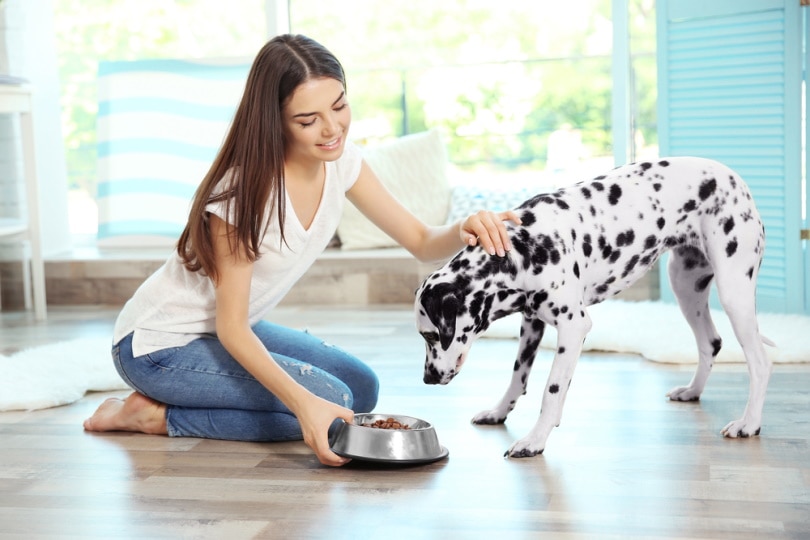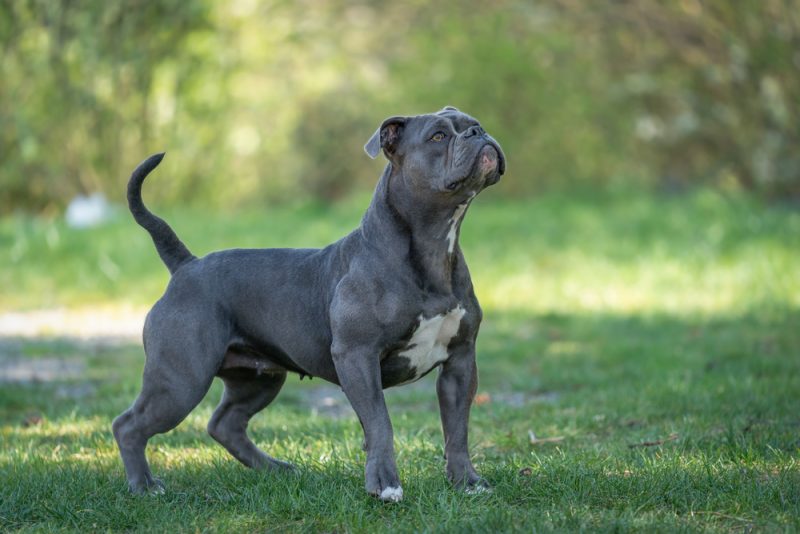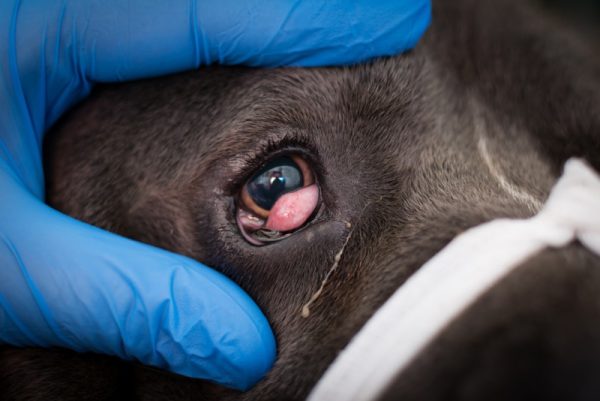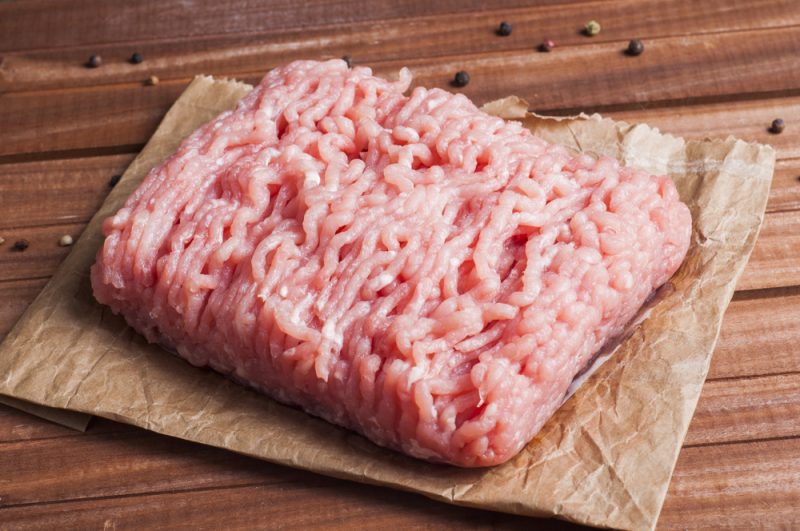As dog owners, we understand the frustration of a pet that scratches and licks excessively, but it is much more agonizing for the dog. If you checked for fleas and there are none, your canine friend likely has dry, itchy skin. If you have ever experienced the discomfort of itchy skin, you can sympathize with your pup and naturally want to find solutions to help them feel more comfortable.
It is important to preface that there isn’t much evidence-based medicine and published medical articles suggesting the use of the following products, and it is always imperative to determine the root cause of dry or itchy skin (which may necessitate a vet visit). However, you will be relieved to know that there are some foods you can add to your dog’s meals that may help them feel more at ease and offer a bit of relief.

The 9 Ideas on What to Add to Dog Food for Dry Skin
1. Olive Oil

Olive oil, which most of us have on our shelves at home, is rich in antioxidants, omega-3 fatty acids, and vitamin E, which are beneficial to skin health. You can give your dog half a teaspoon of olive oil added to their food twice a day, but it is always best to consult a vet for guidance before starting this. Olive oil also has soothing properties if it is applied topically.
2. Coconut Oil
Coconut oil is a healthy and popular alternative to processed trans fats. In addition to helping relieve your pup’s dry skin, coconut oil can assist with weight loss and provide your dog with energy. If you struggle with your canine friend’s bad breath, coconut oil can help, too! However, consult a vet before using it topically or orally.
3. Apple Cider Vinegar
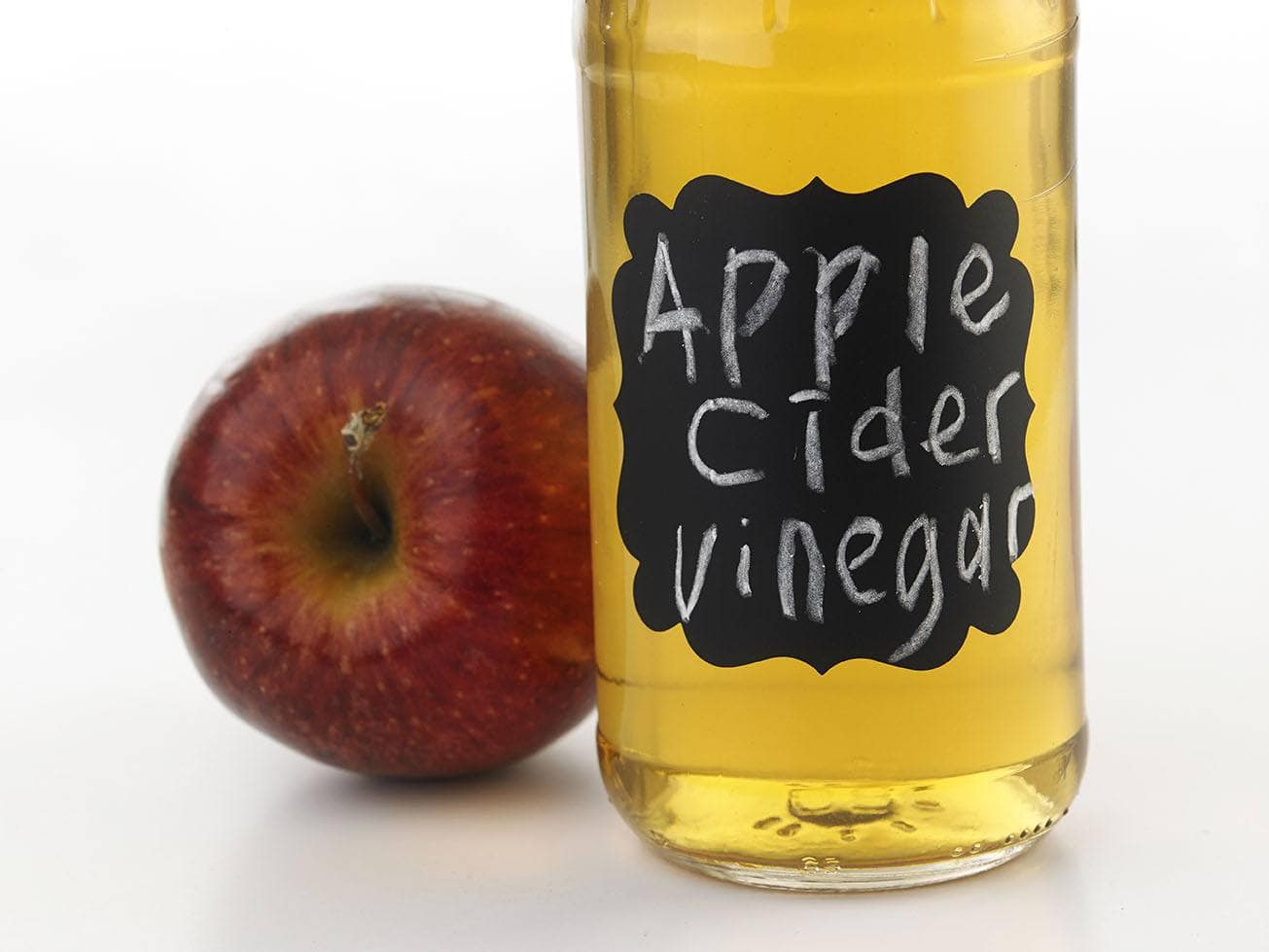
Apple cider vinegar may aid digestion, lower pH, and encourage good bacteria to thrive in the gut. You can cover raw vegetables in apple cider vinegar, allowing them to ferment in the refrigerator, and add a teaspoon to your dog’s food.
4. Yogurt
Plain, non-fat, or low-fat yogurt can be a source of probiotics and calcium. Consider adding a spoonful to your dog’s food every day to improve digestion and moisturize the skin, but make sure to read the label. It is important that the yogurt doesn’t contain xylitol and is not loaded with sugar. Also, keep an eye out for lactose intolerance, and if you are unsure, always consult a vet to ensure your dog can have dairy products, as many dogs may be allergic to dairy.
5. Liquid Fish Oil
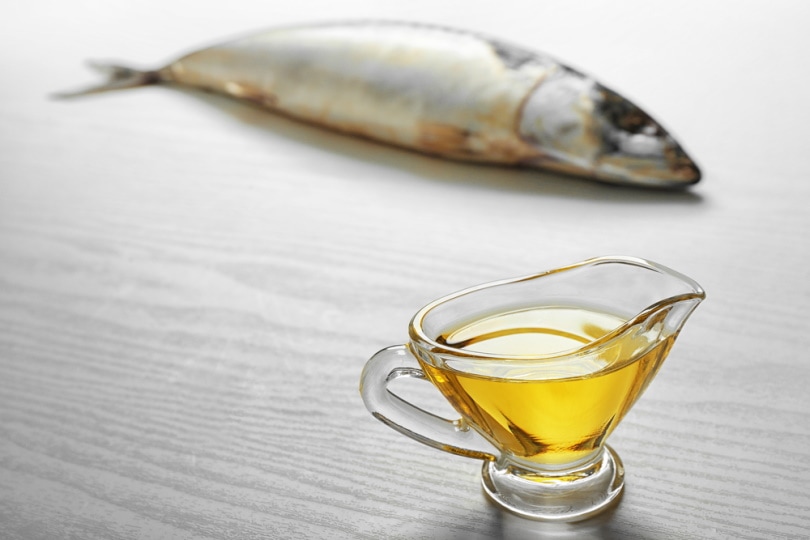
High-quality fish oils contain DHA and EPA, which are omega-3 fatty acids beneficial to skin health. They maintain the skin’s barrier properties to prevent your dog’s skin from drying out. Fish oil has anti-inflammatory properties that can benefit the skin, joints, eyes, heart, and digestive system. Talk to a vet about the correct dosage for your dog.
6. Chia Seeds
Chia seeds are small grains high in fiber and omega-3 fatty acids that play a role in aiding skin ailments. They prevent water loss, create a barrier against allergens and microbes, and they can decrease inflammation. Chia seeds are also high in protein and contain antioxidants that assist in the repair of body cells.
7. Digestive Enzymes

Digestive enzymes are supplements that can help your dog’s itchy skin. They aid digestion by breaking down starch, protein, fiber, and fat, and they make the nutrients easier to absorb.
8. Eggs
Eggs are a great protein for dogs and contain a high vitamin A content that helps stimulate and promote cell turnover. They are an excellent source of essential fatty acids that benefit your dog’s skin by building and maintaining body cells. Eggs also have a high biotin content, which is an essential element in treating dry and itchy skin.
Avoid raw eggs! You can serve your dog scrambled or boiled eggs, but raw eggs can be contaminated with a foodborne virus and are unsafe to feed.
9. Quercetin
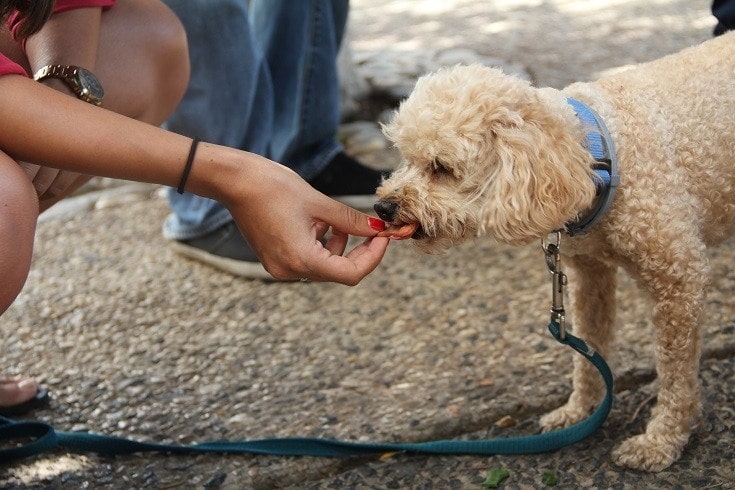
Quercetin can assist dogs that struggle with environmental allergies. It is a plant-based compound with antioxidants, anti-inflammatories, and antihistamine properties. It works best when paired with an enzyme called bromelain, which is in pineapples. Quercetin is available in pill, capsule, or powder form, and a recommended dosage can be determined by a vet.
If you need to speak with a vet but can't get to one, head over to PangoVet. It's our online service where you can talk to a vet online and get the personalized advice you need for your pet — all at an affordable price!


Signs of Dry Skin in Dogs
Itchy skin can be easy to identify, and some dogs may have one or more common signs. They include:
- Flaking: You may notice flaking when grooming your dog or a white flake trail in their path. Flaking happens when the skin cells die and flake off the body.
- Pimples: You may notice small red bumps on your dog’s skin that may cause itching. Your dog can damage their skin by scratching excessively.
- Odor: Your dog’s skin may develop an odor due to infection, a common sign of excessive chewing and licking.
- Redness: Intense and constant scratching may lead to inflammation, making your dog’s skin red and susceptible to infection.
- Hair Loss: If your dog scratches in the same area for a long time, the hair can fall out.
Causes of Dry Skin in Dogs
There could be many reasons for your dog’s dry, itchy skin, and it is necessary to understand the cause to treat it. Dogs can have allergies to organic materials in their environments, like grass, dust, and pollen. However, one of the most common allergens is flea saliva.
Dogs can also develop dry skin from sensitivities to their shampoo, cold weather, and bacterial infections. Your pup’s breed can also be a factor, as some dog breeds are more prone to dry skin than others.

The Role of Nutrition in Skin Health
Your dog’s diet plays a role in their skin health, so it is essential that they are fed a nutrient-dense and complete diet. A healthy balance of omega-3 and omega-6 fatty acids is essential to your dog’s skin health since they assist in alleviating and curing skin ailments. Also, never forget the most important nutrient! Water is essential to your pet’s health and keeping their skin hydrated.
How Else Can I Help My Dog’s Skin?
- Oatmeal shampoos contain anti-inflammatory properties that can soothe your dog’s skin without stripping the natural oils.
- Lavender, tea tree, and calendula oils can help your dog’s skin due to their anti-inflammatory properties. Make sure your dog doesn’t lick off the tea tree oil since it can be toxic.
- Licorice root is a form of cortisone that can relieve itching and irritation while reducing the urge to scratch.

Conclusion
You can understand the frustration that itchy skin can cause for your canine companion, but luckily, there are ways to help them. High-quality dog food, periodic hair brushing, and healthy additions like the ones we have listed can relieve your canine’s discomfort. While holistic and natural home remedies can help, consult a vet before using them since they are not meant to replace traditional medical care.
Featured Image Credit: Africa Studio, Shutterstock
